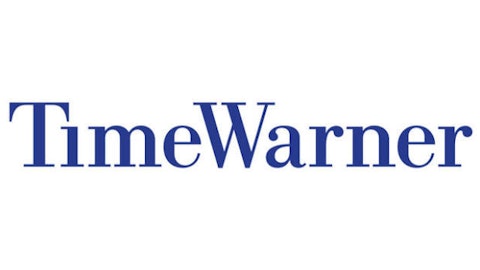DIRECTV (NASDAQ:DTV) stock surged when the company announced earnings results earlier this week, easily beating analyst estimates and highlighting the importance of sports programming to TV providers in driving revenues and profits. In the earnings call that followed the release, CEO Mike White was cagey about the future of the company’s relationship with the NFL that costs about $1 billion per year and is set to expire in 2015. The market reacted well to the news, driving up DIRECTV (NASDAQ:DTV) stock by nearly 7% on the news, and allowing it to reach its highest level in a decade.
The results driving DIRECTV stock
For the most recent quarter, the company took in $7.58 billion of revenue, resulting in a profit of $690 million, or $1.20 per share. The Street had been expecting $7.5 billion in revenue and EPS of $1.07; a year ago, the company earned $1.07 per share on a higher amount of DIRECTV (NASDAQ:DTV) stock outstanding — profits were $731 million. The company missed one estimate, adding only 21,000 new subscribers as compared with the 25,000 expected.
The results were particularly strong given the $166 million currency charge the company took in February. In the quarter, DIRECTV (NASDAQ:DTV)’s stock was aided by the 583,000 new Latin American subscribers added, as compared with the 519,000 expected. Overall, the region remains one of the strongest drivers of growth for the company.
DIRECTV and the NFL
One of the premium services the satellite provider offers is NFL Sunday Ticket, which gives subscribers access to NFL games outside their home market. The service has been a centerpiece of the company’s success, with a reported 4 million subscribers having access to the package out of the 20 million total subscribers. About half of the subscribers with access pay an additional fee to the company, which is one of the reasons it should be seen as important to DIRECTV (NASDAQ:DTV)’s stock.

The importance of sports
As streaming video services such as Netflix, Inc. (NASDAQ:NFLX) continue to compete with more traditional viewing options for our dollars, content is critical. This is one of the reasons Netflix has made a huge push to produce an increasing amount of original content, dropping older movie titles in many instances. Netflix, Inc. (NASDAQ:NFLX) and its competitors are doing battle with original productions, but sports has stayed with cable and satellite providers thus far.
Anyone who watches a lot of sports will note that an increasing amount of sports programming has moved to cable channels. Comcast Corporation (NASDAQ:CMCSA) broadcasts NBA playoff games on Time Warner Cable Inc (NYSE:TWX)‘s TNT network, and even in Chicago, most Blackhawks games have been aired on NBC SportsNet, rather than on NBC itself. This shift is happening because sports programming is one area that viewers want to watch in real time, meaning that waiting for rebroadcasts, repackaging, or recapping doesn’t have the same appeal. Sports may be the last frontier of cable and satellite providers, so a softening relationship with the NFL could have a huge impact on DIRECTV (NASDAQ:DTV) stock over the coming years. This is a critical issue to watch, but in the meantime, you can thank the gridiron gladiators for the stock’s recent touchdown dance.
The article NFL Pushes DIRECTV Stock to New High originally appeared on Fool.com.
Fool contributor Doug Ehrman has no position in any stocks mentioned. The Motley Fool recommends DIRECTV and Netflix and owns shares of Netflix.
Copyright © 1995 – 2013 The Motley Fool, LLC. All rights reserved. The Motley Fool has a disclosure policy.


